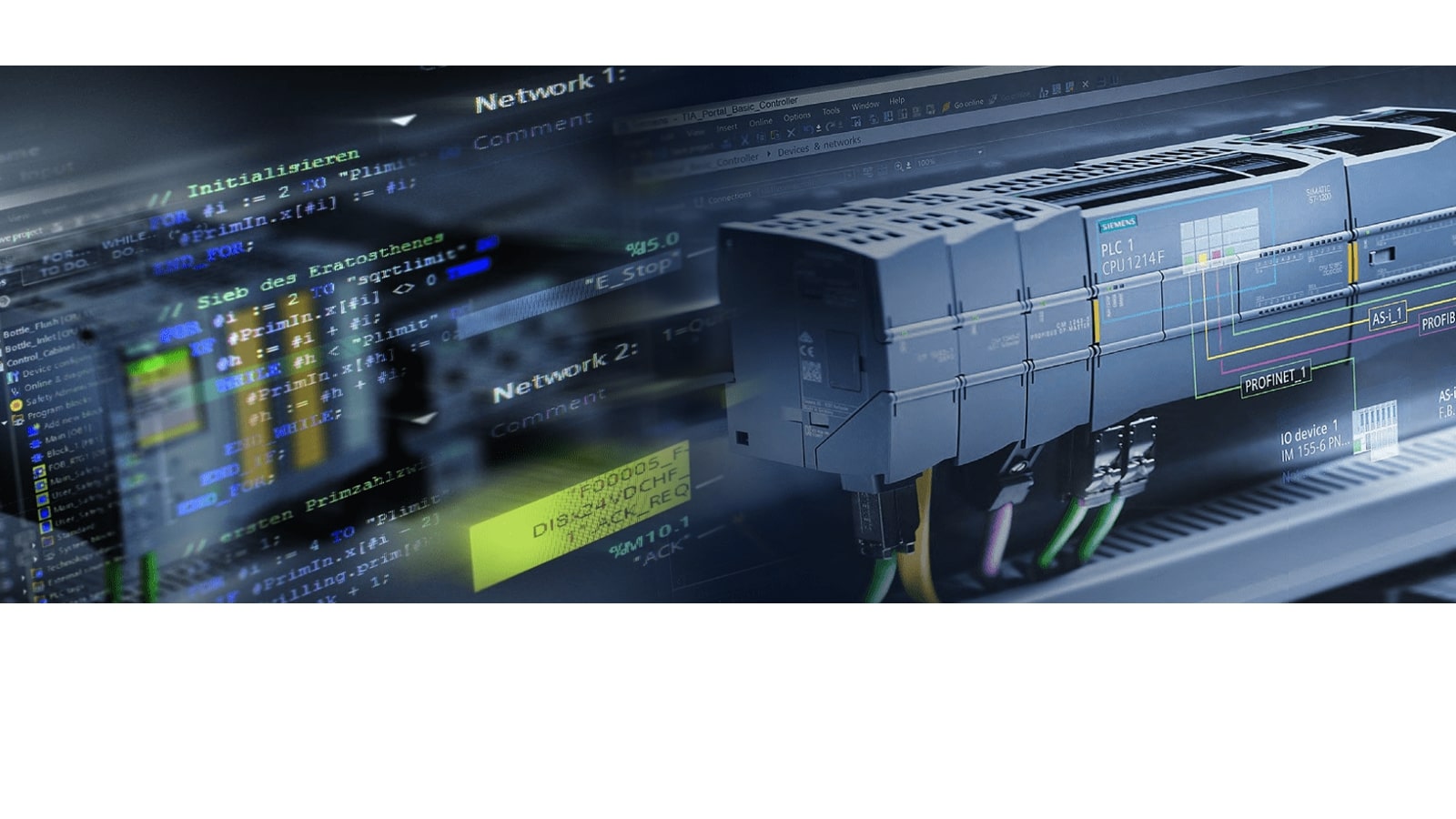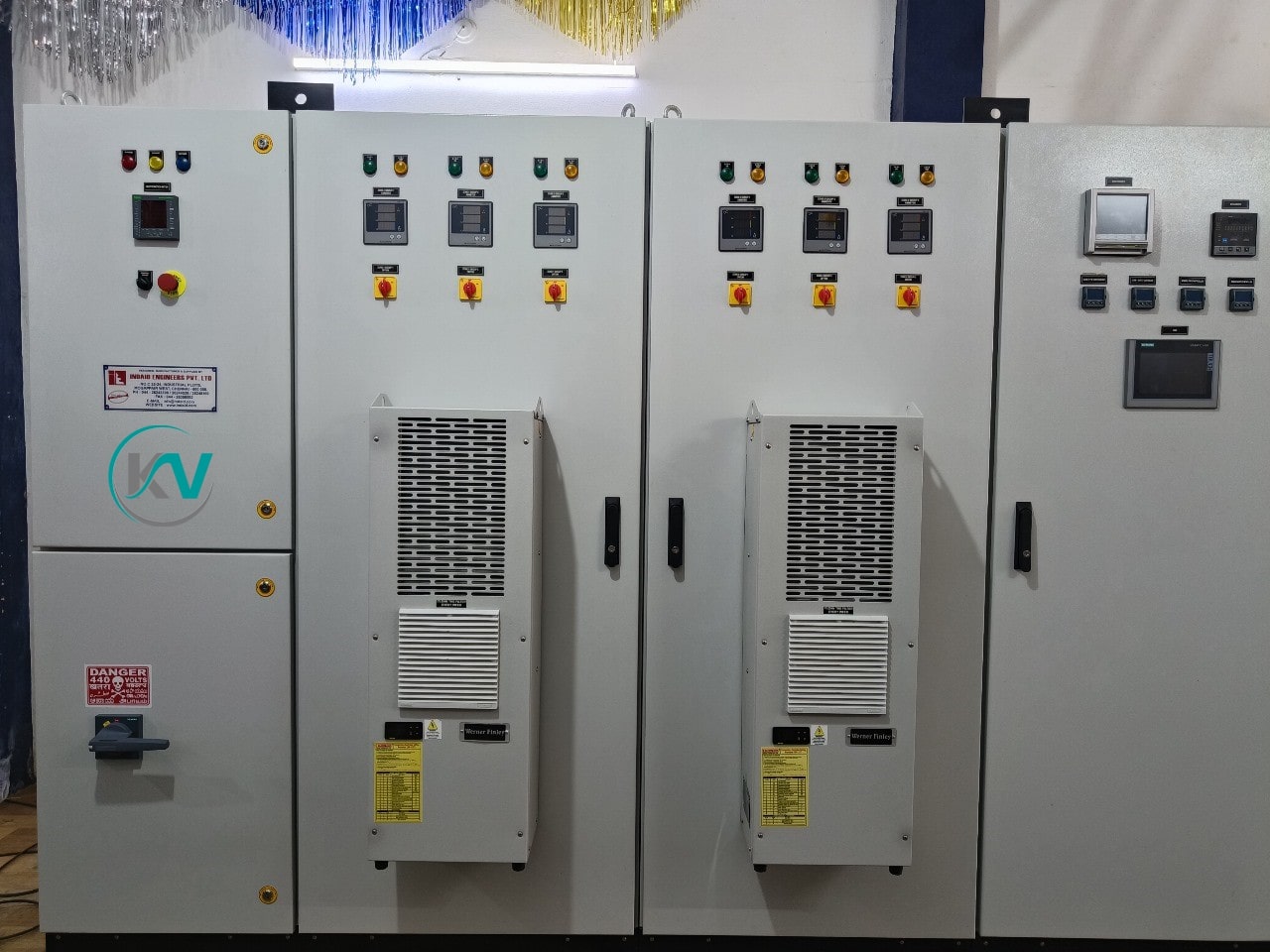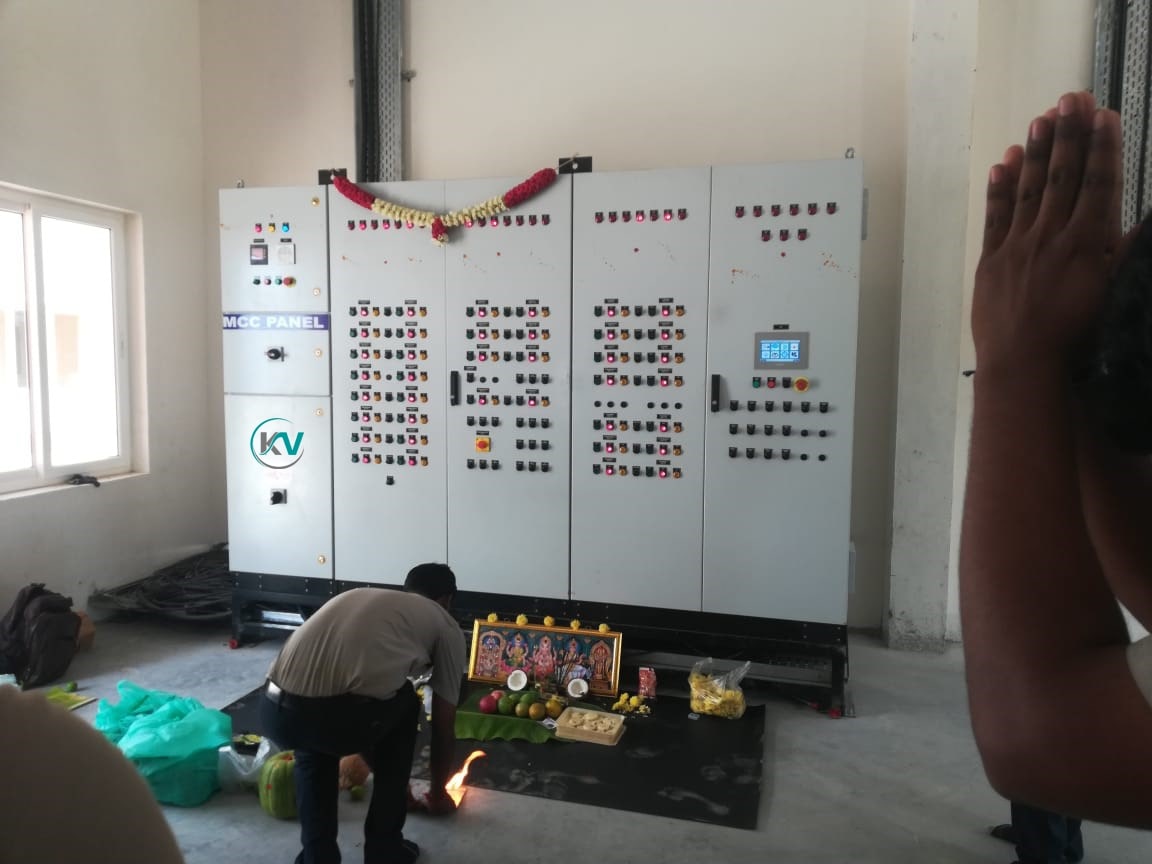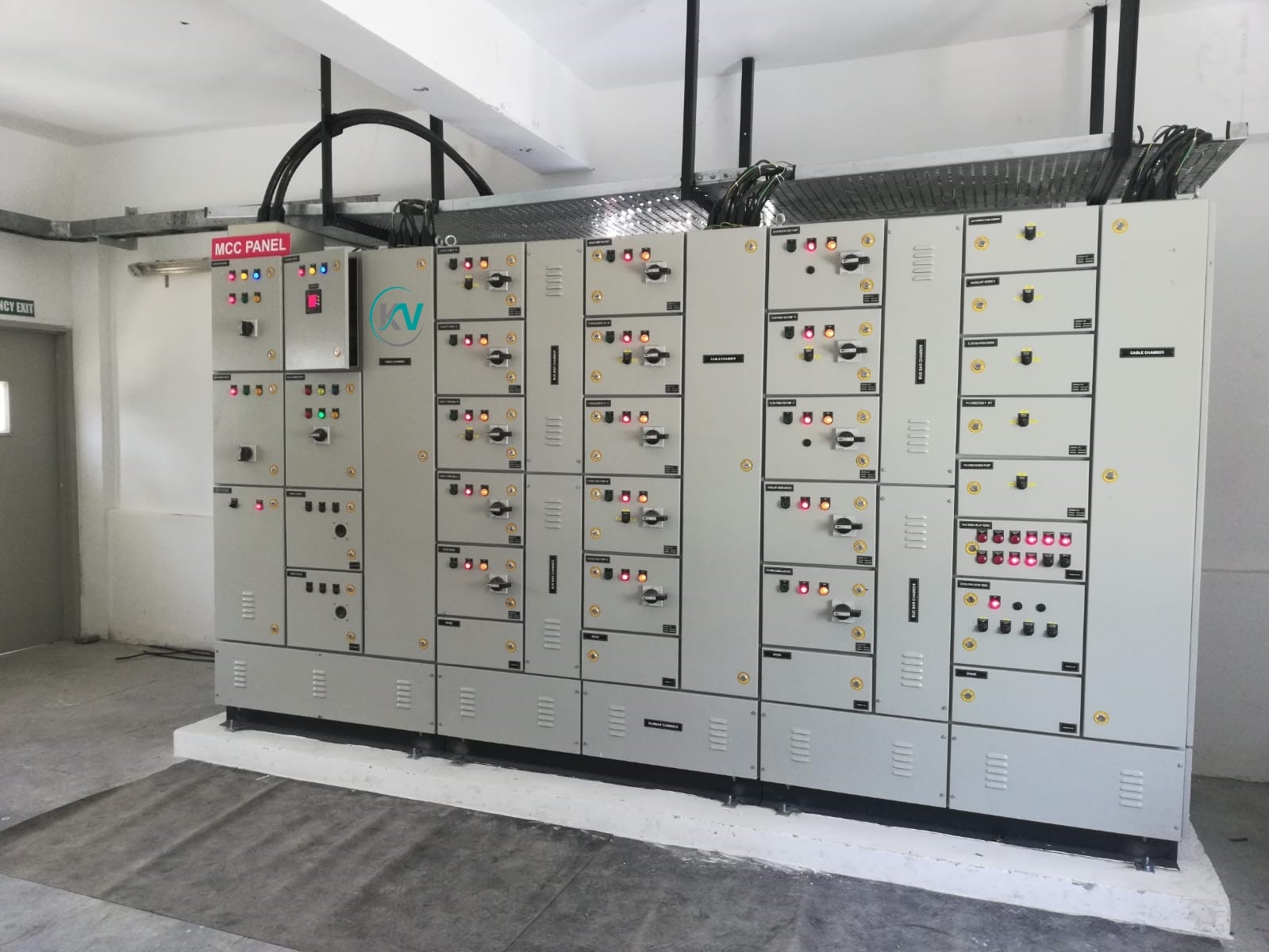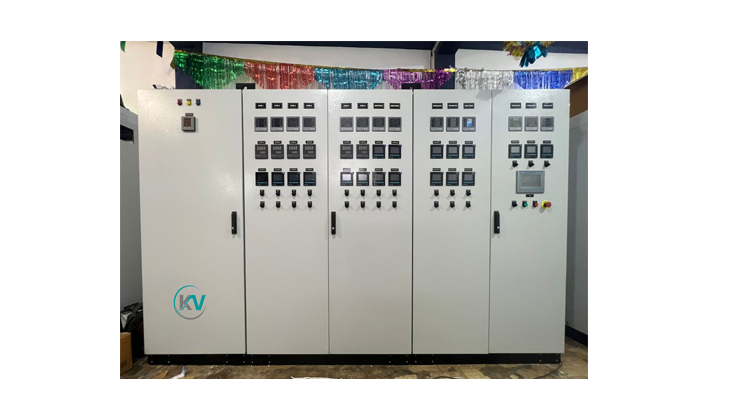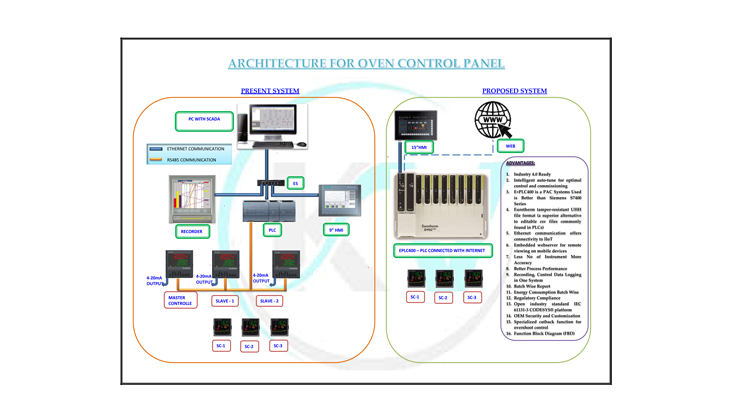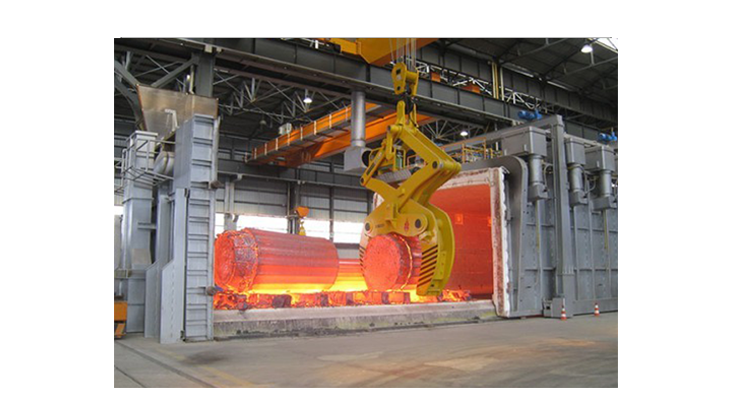We are delighted to introduce KV SMART SYSTEMS, a company founded and led by technically qualified women entrepreneurs with over 8 years of experience in the fields of Industrial Automation, Instrumentation, and Design.
Read More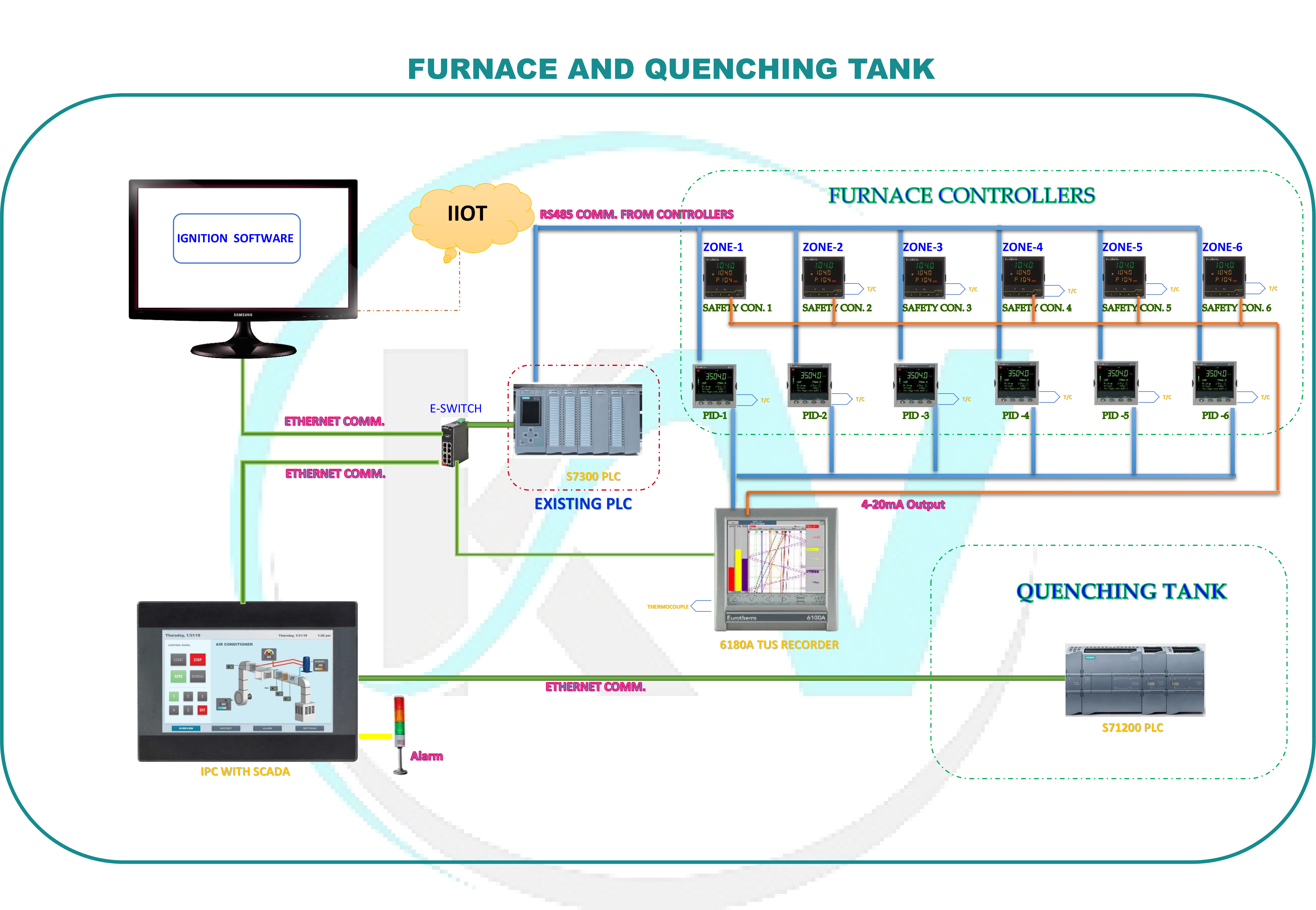
FURNACE AND QUENCHING TANK
Gathering data from different systems across a complete plant and enabling remote monitoring and control via IoT (Internet of Things) involves integrating various sensors, PLCs, HMIs, and SCADA systems.
Here’s how you can implement this setup effectively:
Components Involved
- Types of Sensors: Temperature, pressure, flow, level sensors, etc., installed across different parts of the plant.
- Actuators: Valves, motors, pumps, etc., controlled based on data from sensors.
1. Sensors and Actuators:
- Functionality: Collect data from sensors, control actuators, and execute control algorithms based on programmed logic.
- Communication: Use protocols like Modbus, Profibus, or Ethernet/IP for data exchange.
2. PLCs (Programmable Logic Controllers):
- Purpose: Acts as a bridge between PLCs and the IoT platform, enabling data transmission over the internet.
- Protocols: MQTT, HTTP(S), CoAP, etc., for communication with the IoT cloud.
3. IoT Gateway:
- Cloud Service: Examples include AWS IoT, Azure IoT Hub, Google Cloud IoT Core.
- Functionality: Collects, processes, and stores data from the plant for analysis and remote access.
4. IoT Cloud Platform:
- Interfaces: Web-based dashboards, mobile apps, or custom software interfaces for visualization and control.
- Alerts and Notifications: Setup alarms for critical conditions and notifications for operational events.
5. Remote Monitoring and Control:
Implementation Steps
- Install sensors at key points in the plant to measure relevant parameters.
- Connect sensors to PLCs using appropriate wiring and communication protocols.
- • Program PLCs to read sensor data, control actuators, and execute logic based on operational requirements.
1. Sensor and PLC Integration
- Deploy IoT gateway devices at the plant to collect data from PLCs.
- Configure the gateway to communicate securely with PLCs using industrial protocols.
- Setup communication with the IoT cloud platform using MQTT or other suitable protocols.
2. IoT Gateway Configuration
- Choose an IoT cloud platform that meets your scalability, security, and analytics requirements.
- Establish connections between IoT gateways and the cloud platform.
- Define data ingestion methods, data storage policies, and access controls within the cloud platform.
3. Integration with IoT Cloud Platform
- Develop user interfaces (UIs) for remote monitoring and control using the IoT cloud platform's tools.
- Design dashboards to visualize real-time and historical data from the plant.
- Implement functionalities for remote control of equipment and systems based on the monitored data.
- Implement security measures such as encryption, access control, and authentication to protect data and remote access.
- Define data retention policies and backup strategies to ensure data integrity and availability.
- Conduct thorough testing of the entire IoT system to ensure data accuracy, system reliability, and responsiveness.
- Optimize data processing workflows, dashboard layouts, and control functionalities based on user feedback and operational needs.
- Remote Accessibility: Configure the SCADA system to log historical data from PLCs at regular intervals.
- Real-Time Insights: Store data in a centralized database for trend analysis, performance monitoring, and regulatory compliance reporting.
- Efficiency and Cost Savings: Optimizes resource usage, reduces downtime, and improves overall operational efficiency.
- Scalability: Easily scales to accommodate additional sensors, devices, and functionalities as the plant expands.
4. Remote Monitoring and Control Setup
5. Security and Data Management
6. Testing and Optimization
Advantages of Using IoT for Plant Monitoring and Control

Why Creote
Affordable & Flexible
Must explain too you how all this mistaken idea of denouncing pleasures praising pain was born and we will give you complete account of the system the actual teachings of the great explorer.
- Cost-Effective Services
- Helps Reduce Business Risks
- Management of Employee Performance
- Increasing Company’s Agility

Why Creote
Affordable & Flexible
Must explain too you how all this mistaken idea of denouncing pleasures praising pain was born and we will give you complete account of the system the actual teachings of the great explorer.
- Cost-Effective Services
- Helps Reduce Business Risks
- Management of Employee Performance
- Increasing Company’s Agility

